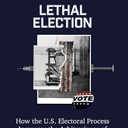
A fractured Washington Supreme Court unanimously found that a death-row prisoner’s constitutional rights had been violated under circumstances that had always before required overturning a conviction and granting a new trial, but nevertheless voted to uphold his conviction and death sentence. In five opinions spanning 254 pages published on April 12, 2018, the nine justices agreed that Conner Schierman’s (pictured) rights to be present and to a public trial were violated during the jury selection process in his case when the court discussed potential challenges for cause related to six prospective jurors in the judge’s chambers outside the presence of the defendant and the public without making a record of the proceedings. Under long-established Washington law, such constitutional violations had long been considered “structural error” requiring that a new trial automatically be granted. In the lead opinion in the case, Justice Sheryl Gordon McCloud wrote that the 10-minute proceeding could not have had any effect on the trial and did not undermine public confidence in the justice system. In a concurring opinion, Justice Mary Yu, joined in by three other justices, wrote: “A majority of this court agrees that justice demands we affirm Schierman’s convictions, but every member of the court unanimously agrees that our precedent precludes us from doing so. In this direct conflict between justice and precedent, justice must prevail.” Four justices dissented from the majority’s decision to change exisiting law to uphold Schierman’s convictions. Two other justices, and one of the guilt-stage dissenters, also believed that Schierman’s death sentence had been unconstitutionally imposed, for a total of six justices who had determined that the constitutional violations in the case required that Schierman be granted a new trial or that his death sentence be overturned. But rather than ruling that a death sentence cannot be imposed for an unconstitutionally obtained conviction, three of the guilt-stage dissenters — Justices Debra Stephens, Charles Johnson, and Susan Owens — joined with the remaining justices to uphold Schierman’s death sentence by a vote of 6 – 3. Schierman was convicted and sentenced to death in King County in 2010 for stabbing to death four members of Leonid Milkin’s family while the National Guardsman was deployed to Iraq. He is the last person to have been sentenced to death in King County, which includes the city of Seattle. King County Prosecuting Attorney Dan Satterberg has advocated abolishing Washington’s capital-punishment statute, writing that “the death penalty law in our state is broken and cannot be fixed. It no longer serves the interests of public safety, criminal justice, or the needs of victims.” He testified before a state senate committee, “If you look at it carefully and take away the politics and the emotion, by any measure this doesn’t work. Our criminal justice system would be stronger without the death penalty.” Satterberg said Leonid Milkin “is supportive of the death penalty in this matter and we continue to pursue it, as it continues to be the law of the state.” The bi-partisan abolition bill, which has the support of Governor Jay Inslee and the state’s last two attorneys general, passed the state senate and a house committee in the 2018 legislative session that ended in March, but never received a vote before the full house. Governor Inslee imposed a moratorium on executions in Washington in February 2014.
(Sara Jean Green, Divided Supreme Court upholds death sentence for man who killed Kirkland family in 2006, Seattle Times, April 12, 2016; Martha Bellisle, Supreme Court Upholds Conviction, Death Sentence, Associated Press, April 12, 2018.) Read the five opinions in State v. Schierman, No. 84614 – 6 (Wash. Apr. 12, 2018), here. See Washington and Arbitrariness.



